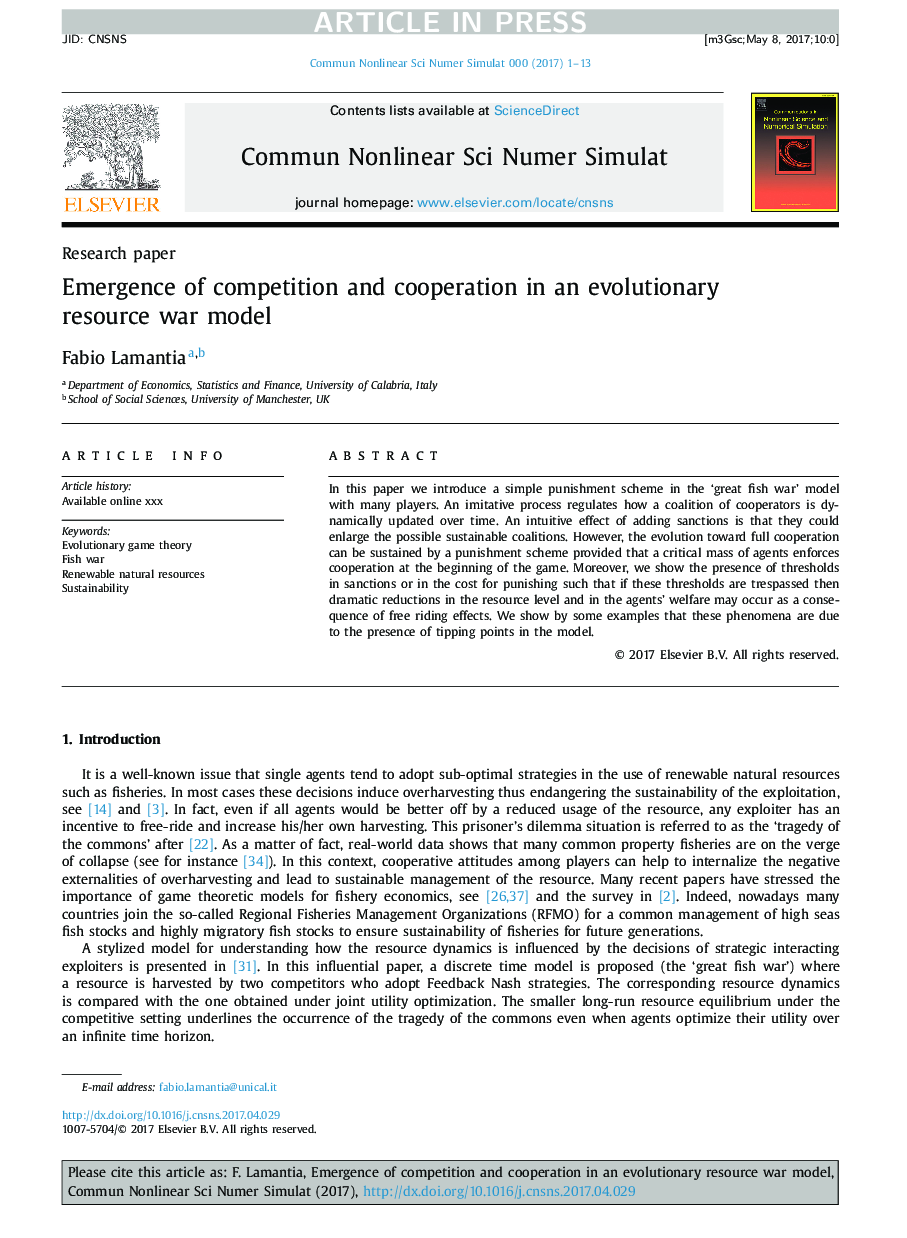| Article ID | Journal | Published Year | Pages | File Type |
|---|---|---|---|---|
| 7154915 | Communications in Nonlinear Science and Numerical Simulation | 2018 | 13 Pages |
Abstract
In this paper we introduce a simple punishment scheme in the 'great fish war' model with many players. An imitative process regulates how a coalition of cooperators is dynamically updated over time. An intuitive effect of adding sanctions is that they could enlarge the possible sustainable coalitions. However, the evolution toward full cooperation can be sustained by a punishment scheme provided that a critical mass of agents enforces cooperation at the beginning of the game. Moreover, we show the presence of thresholds in sanctions or in the cost for punishing such that if these thresholds are trespassed then dramatic reductions in the resource level and in the agents' welfare may occur as a consequence of free riding effects. We show by some examples that these phenomena are due to the presence of tipping points in the model.
Related Topics
Physical Sciences and Engineering
Engineering
Mechanical Engineering
Authors
Fabio Lamantia,
